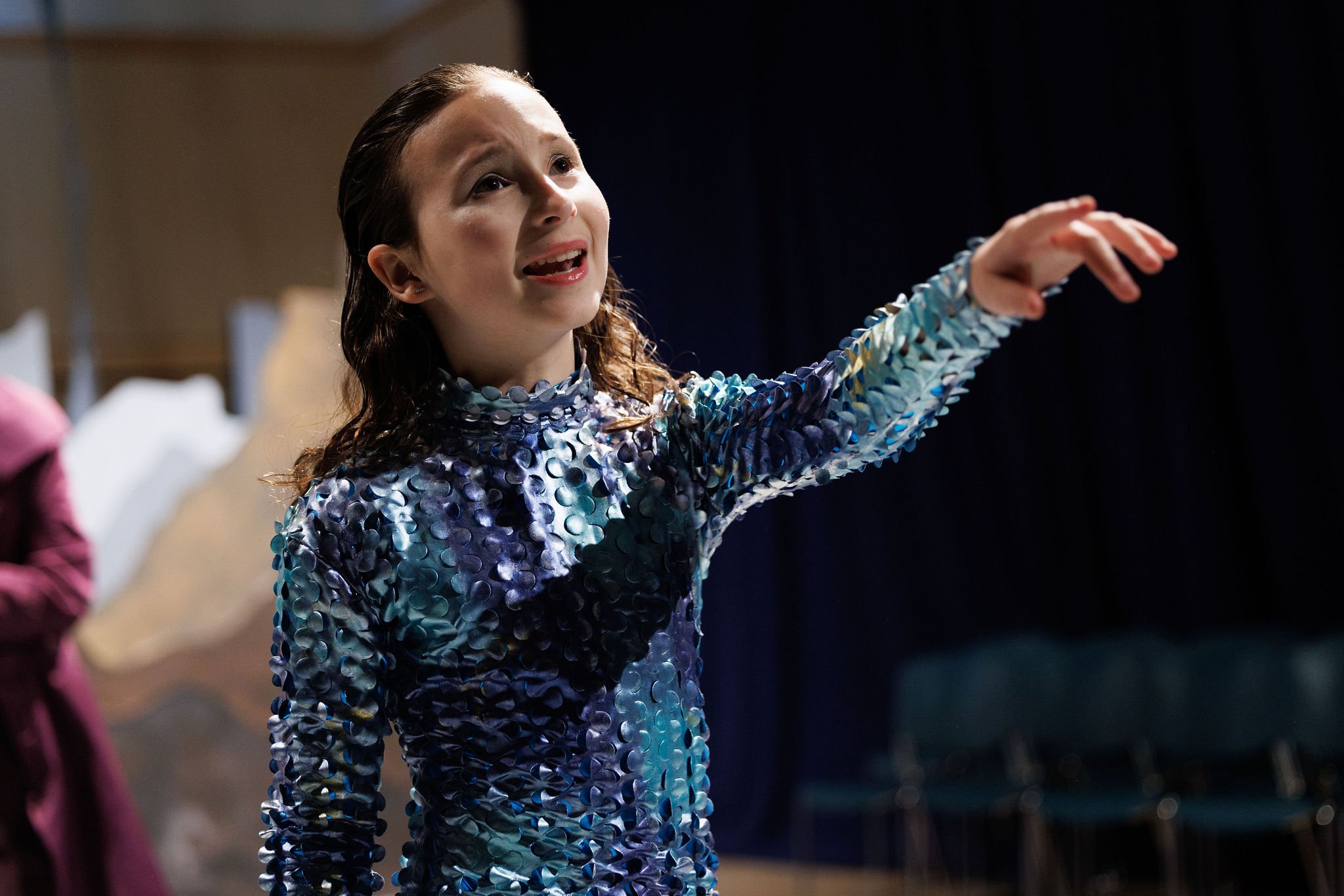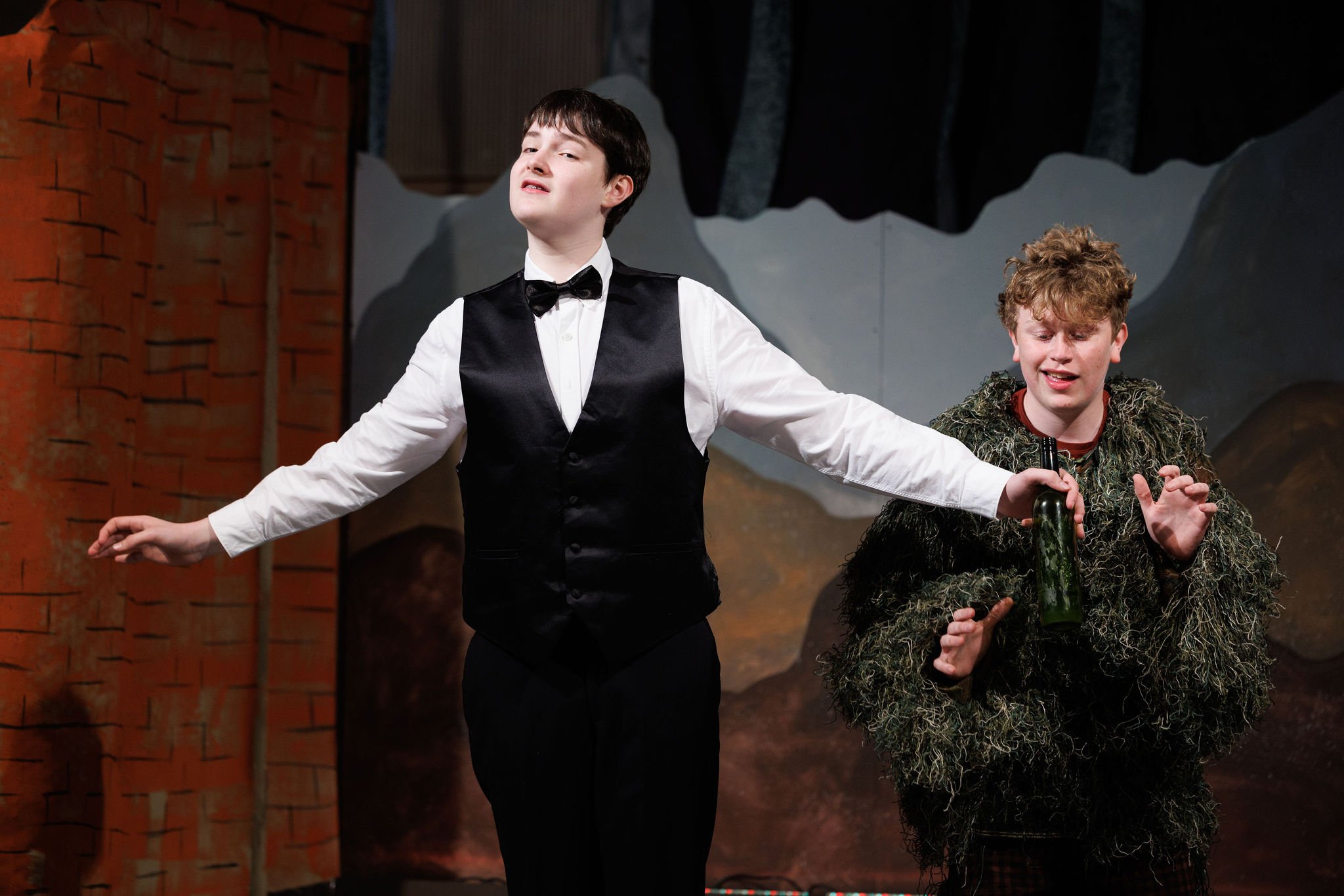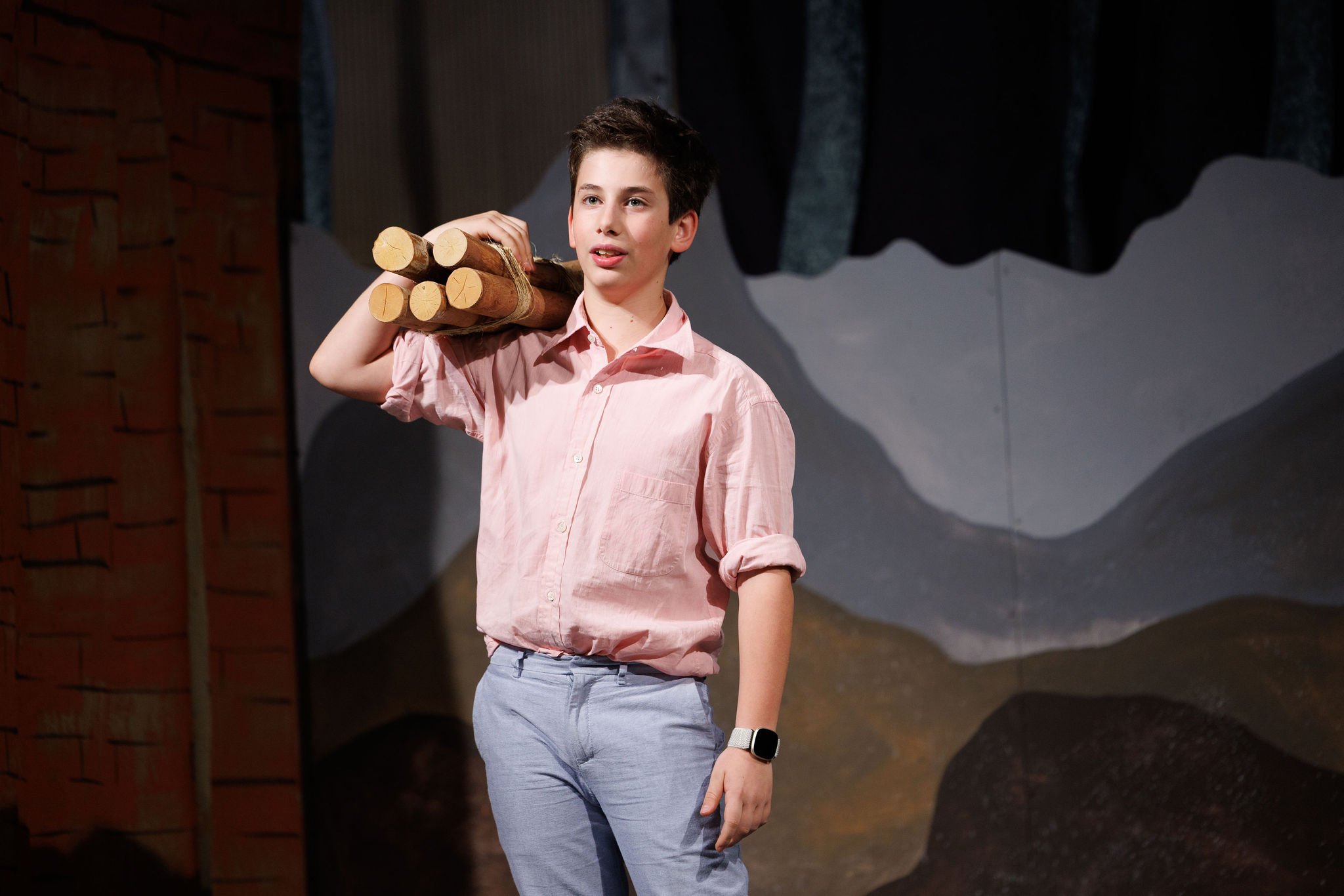Cultivating Confidence and Connection
O, wonder!
How many goodly creatures are there here!
How beauteous mankind is! O brave new world,
That has such people in't!
—The Tempest, Act 5, Scene 1
There is a lot that happens at Browning during the month of May: Sports teams move into playoffs, AP exams are completed, student leadership transitions begin, and a bevy of community/family activities are at hand. As much as I love all of it, here I did want to reserve special comment for our Tobin Public Speaking Program and The Tempest, this year’s Middle School Shakespeare production.
The critic might dismiss public speaking and Shakespeare as somehow antique and irrelevant; I’d counter that these experiences are among the most elastic and rewarding things that we offer at Browning.
Public speaking may seem passé in an era of text messages and social media and chat rooms, but when our boys--particularly those in Grades 3 and 4—perform oratory, they are doing something at once both useful and distinctive. There are, of course, instrumental benefits to learning to speak well in public: a deeper appreciation for the power of clear communication, the ability to train memory, and experience in connecting with large audiences, among others. But the most delightful parts of the program are rooted less in the skills developed than the feelings realized. There is something irresistible in seeing a boy so identify with a speech or poem that it feels like he’s not so much performing as inhabiting, and showing us something new about both the words and himself in the process. And, of course, there is the sense of confidence and accomplishment that emerges from doing something that can initially be so daunting. (As Jerry Seinfeld quipped, “At a funeral, most people would rather be the guy in the coffin that have to stand up and give a eulogy.”) Our boys speak in public to communicate and connect, yes, but also to discover an aspect of themselves that may have otherwise lain dormant.
Our annual Middle School foray into Shakespeare can be understood in largely the same terms. Far from being esoteric expressions of a remote sensibility, the texts themselves allow readers (which absolutely includes Middle Schoolers) to dive into themes that are as pertinent today as they were 400 years ago; indeed, to study this year’s play, The Tempest, is to enter a meditation on the meaning of freedom, the challenges of forgiveness, and the power and limits of both nature and society. Of course, if reading Shakespeare’s plays is enriching, performing them is often more powerful still, as players are called upon to understand character perspectives, motivations, and rhythms in deeper, more imaginative ways—“becoming” Prospero, Caliban, or Alonso can only enhance one’s appreciation of an exceptional piece of literature. And doing all of this as part of a Shakespearean cast produces moments that simply cannot be realized individually. Every year, the best part of the play is the curtain call, when you can see castmates not only proud of the work that they themselves have done, but also genuinely delighting in the accomplishments of their peers. (The same can certainly be said for our public speakers, who are always quick to applaud the work of their classmates.) At a developmental period when so many forces push adolescent boys to close off their feelings, to quell their earnestness, and to adopt a pose of cool indifference, our annual Shakespeare play—skillfully directed by drama teacher Adam Giordano and supported by a legion of volunteers—offers our Middle Schoolers a space to come together with emotional honesty and openness.
Browning thinks a great deal about what our boys will need for their future. A lot of that thinking (and rightly so) hinges upon how our students will make sense of a world exploding with technological change. But in our effort to prepare our boys for the new, innovative, and as yet unseen, we need not ignore the significance of proven activities and experiences which provide students not only with new skills and deeper understanding, but also with senses of purpose, meaning, accomplishment, and connection. There are, indeed, many goodly creatures here, and it’s stirring to watch them thrive by making our school’s traditions their own.





















